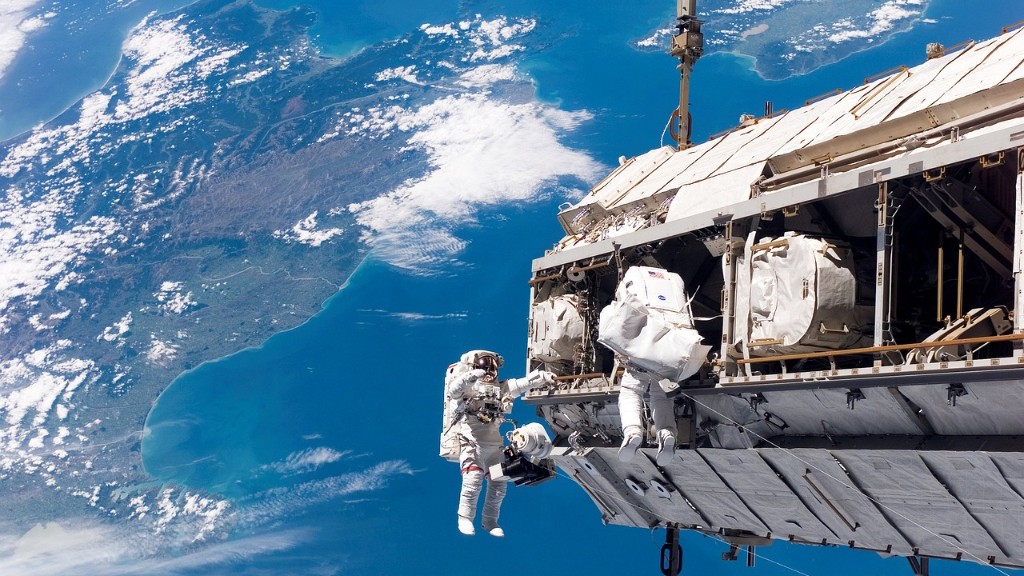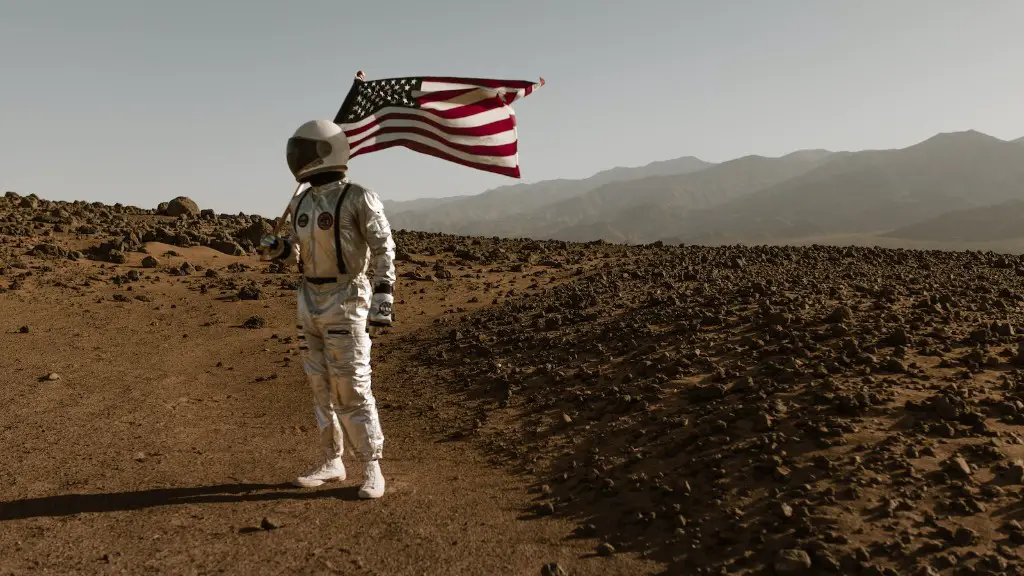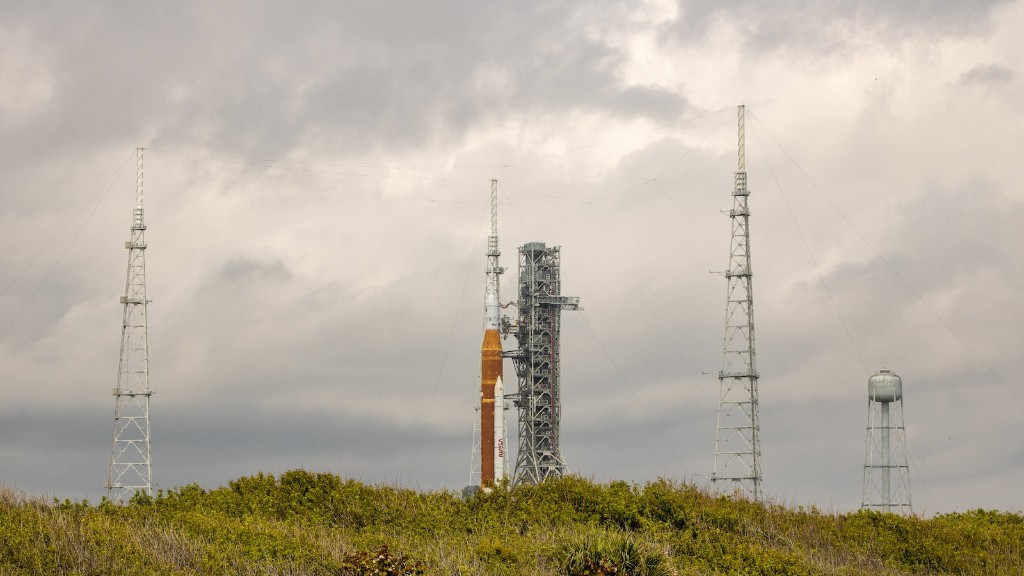yes, nasa has found water on mars. In 2015, NASA’s Mars Reconnaissance Orbiter found evidence of flowing water on Mars. In 2018, NASA’s Curiosity rover found that Mars had all the ingredients needed for life, including water.
No, as of yet, NASA has not found water on Mars.
Was there water on Mars NASA?
According to a new study by NASA’s Mars Reconnaissance Orbiter (MRO), water flowed on the surface of Mars for a longer period of time than previously thought. The MRO used its Context Camera to take images of Bosporos Planum, a location on Mars that contains salt deposits within a dry channel. The study found that the salt deposits could only have been formed by water flowing within the last 3 billion years. This is significantly longer than the previous estimate of 1.8 billion years. The study also found that the water flowed for a much longer period of time than previously thought, lasting for at least 100 million years. This new information suggests that Mars was once a much wetter planet than previously thought, and that life may have had a chance to develop on the surface of Mars for a longer period of time.
Water ice is present at both of Mars’s poles. The northern polar ice cap contains the only visible water on the planet, while the southern pole covers its water with a frozen carbon-dioxide cap.
Did NASA perseverance find water on Mars
The Perseverance rover has discovered stunning Martian rocks in the Jezero crater that may have life-related traces. Scientists believe that the Martian surface was once filled with water. This discovery is a major step forward in our understanding of the Red Planet and its potential for hosting life.
Water is hard to come by on Earth, but it is not scarce in the solar system. The moon and Mars both have ice that could theoretically be turned into drinking water. However, making water from ice is difficult and expensive, so it is not currently practical to do so on a large scale. In the future, however, water may become more valuable as Earth’s supplies dwindle, and it may become necessary to mine water from other planets in order to keep people alive.
Why did Mars water go away?
Carbon dioxide is a gas that is known to trap heat in the atmosphere, making it a strong greenhouse gas. This means that it can help to keep a planet warm, which is why it was thought to be the leading candidate for the drying out of Mars. However, more recent research has suggested that other factors, such as the loss of water from the Martian atmosphere, may have been more important in causing the planet to become dry and cold.
This new finding, however, suggests that not only was water present on early Mars, but the planet had a much more Earth-like environment. This is an exciting discovery as it opens up the possibility that Mars was once habitable for life as we know it.
What planet has water?
This is because the habitable zone is the only area where the temperature is just right for liquid water to exist on a planet’s surface. Earth is also the only known planet to have an atmosphere that is ideal for supporting life as we know it.
This new discovery of water worlds is an exciting step in the exploration of exoplanets. These planets, Kepler-138c and d, are covered with water and are a potential home for life. This discovery opens up the possibility that there are many more water worlds out there, just waiting to be discovered.
Has water been found on other planets
There is water on several of the planets and their moons in our solar system. However, Earth is the only planet with large amounts of liquid water. Water exists in the form of ice on some of the other planets and their moons. There is also water vapor in the atmospheres of some of the planets. Finally, there are oceans of water on some of the moons of the gas giant planets.
The presence of water on other worlds offers clues in the search for life beyond Earth. Life as we know it requires water, so the presence of water on another world could indicate the potential for life. However, the form that water takes on other worlds (ice, vapor, or liquid) and the conditions under which it exists (temperature, pressure, etc.) are also important factors in determining whether life could exist on a particular world.
Between 41 and 37 billion years ago, the amount of surface water decreased significantly as it was soaked up by minerals in the crust and as it escaped into space. This was a time of great change on Earth, as the land began to dry out and form the first continents. This period was also marked by a huge increase in the number of meteorites hitting the planet.
Was there water on Mars could the crew access it?
Orbiting spacecraft have carried more sophisticated instrumentation designed to answer this question Liquid water cannot exist on the surface of Mars under present environmental conditions The atmospheric pressure at the surface is approximately 5–10 millibars — about 1% of sea level pressure on Earth.
The Mars Reconnaissance Orbiter (MRO) is a multipurpose spacecraft designed to conduct reconnaissance and exploration of Mars from orbit. The orbiter carries six instruments to image the surface of Mars, study the atmosphere and map the planet’s gravity and magnetic fields.
The Mars Climate Sounder (MCS) is an instrument on board the Mars Reconnaissance Orbiter designed to provide a daily, global, three-dimensional view of the Martian atmosphere in order to study the climate and atmosphere of Mars.
The Mars Compact Reconnaissance Spectrometer for Mars (CRISM) is a visible/near-infrared spectrometer that is part of the Mars Reconnaissance Orbiter (MRO) payload.
The Mars Advanced Radar for Subsurface and Ionospheric Sounding (MARSIS) is a low-frequency radar sounder designed to probe the Martian subsurface and ionosphere.
The Mars Climate Orbiter Camera (MOC) is a wide
Mars may indeed look like a hot, fiery planet from afar, but don’t be deceived! In reality, Mars is quite cold. This is due in part to its distance from the Sun – Mars is about 50 million miles farther away from our star than Earth. This means that it receives a lot less light and heat to keep it warm. Additionally, Mars has a hard time holding onto the heat it does get, making it an even colder place to be. So if you’re ever planning a trip to Mars, make sure to pack your heaviest coat!
Can you boil water on Mars
The freezing point and boiling point of water on Mars are lower than on Earth due to the lower atmospheric pressure on Mars.
A sip of Martian water would most likely taste very salty and acidic, making it difficult to consume. This is due to the high concentrations of minerals and salts in the water on Mars. Additionally, the lack of oxygen and atmosphere on the planet creates a very hostile environment for life.
What is a dead planet?
Mercury is the smallest planet in our solar system and is the closest to our sun. It is also the most heavily cratered object in our solar system. Mercury has a very thin atmosphere and no moons. Without an atmosphere, Mercury is a silent world without any sound.
Did you know that the total amount of water on Earth is fixed? The amount of water is neither gained nor lost between the Earth and its atmosphere. This means that the same water that was here millions of years ago is still here today.
Warp Up
There is strong evidence that water exists on Mars, but NASA has not yet found direct evidence of liquid water on the planet’s surface. However, they have found evidence of water vapor and ice.
Nasa has not found water on Mars.





